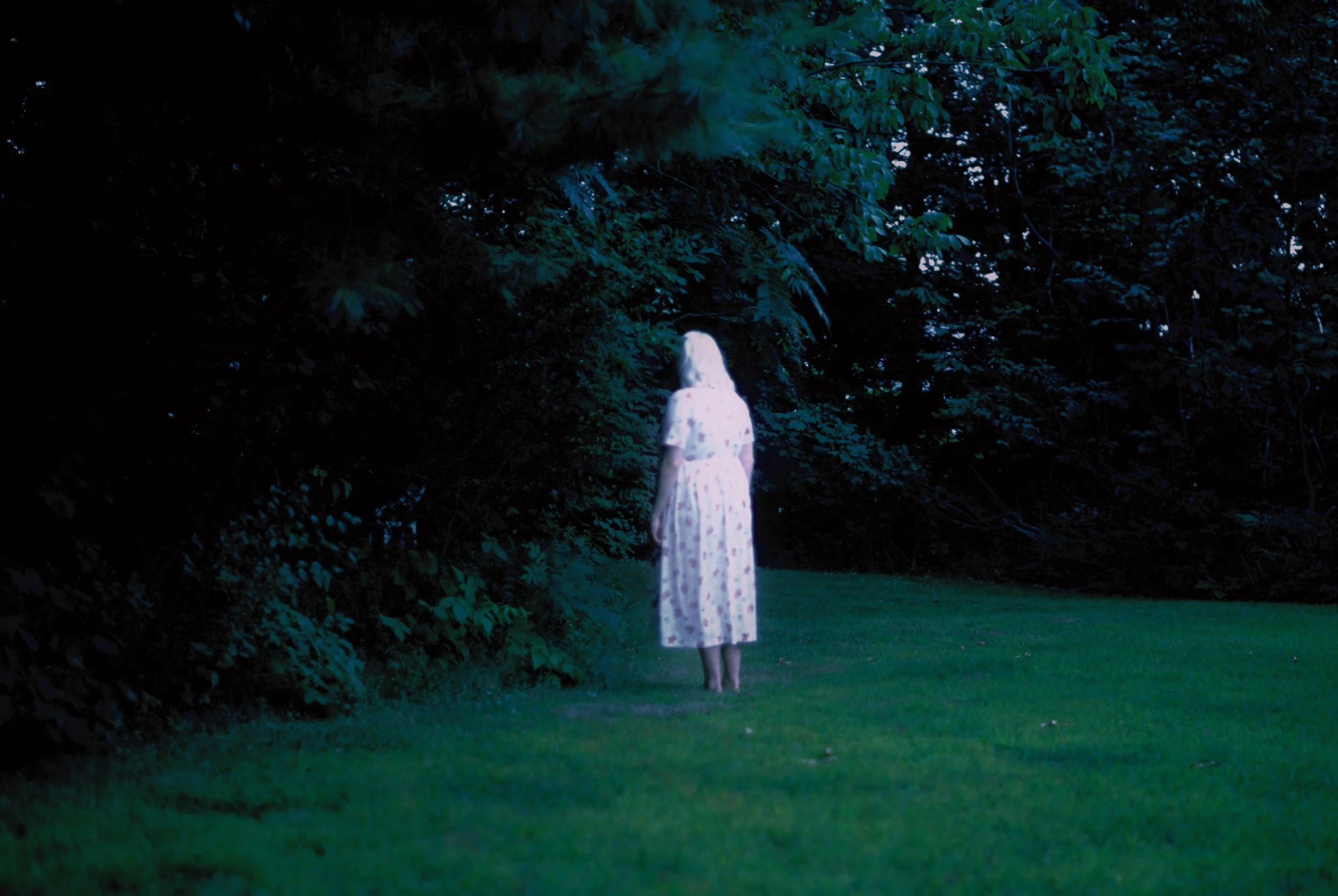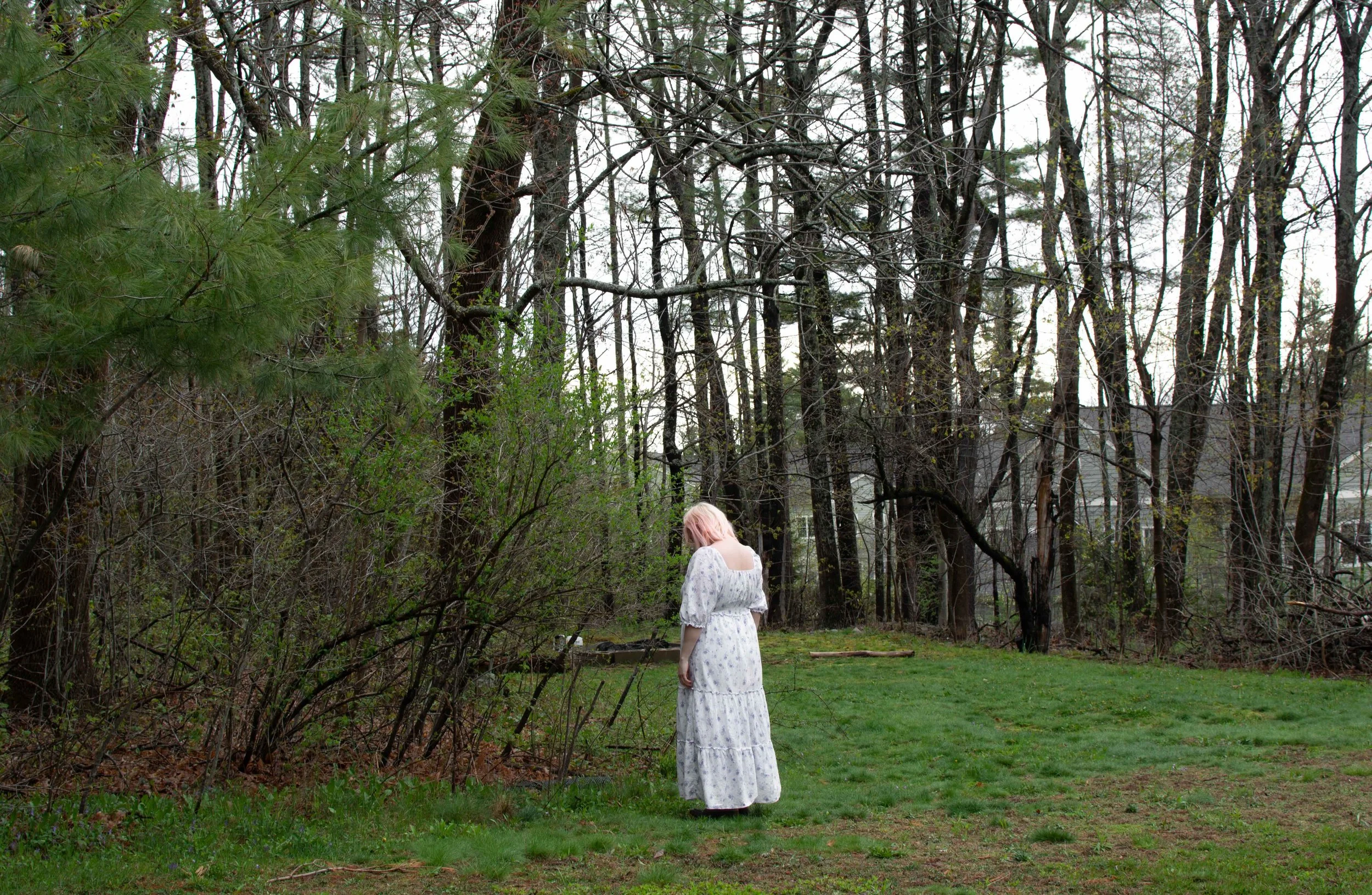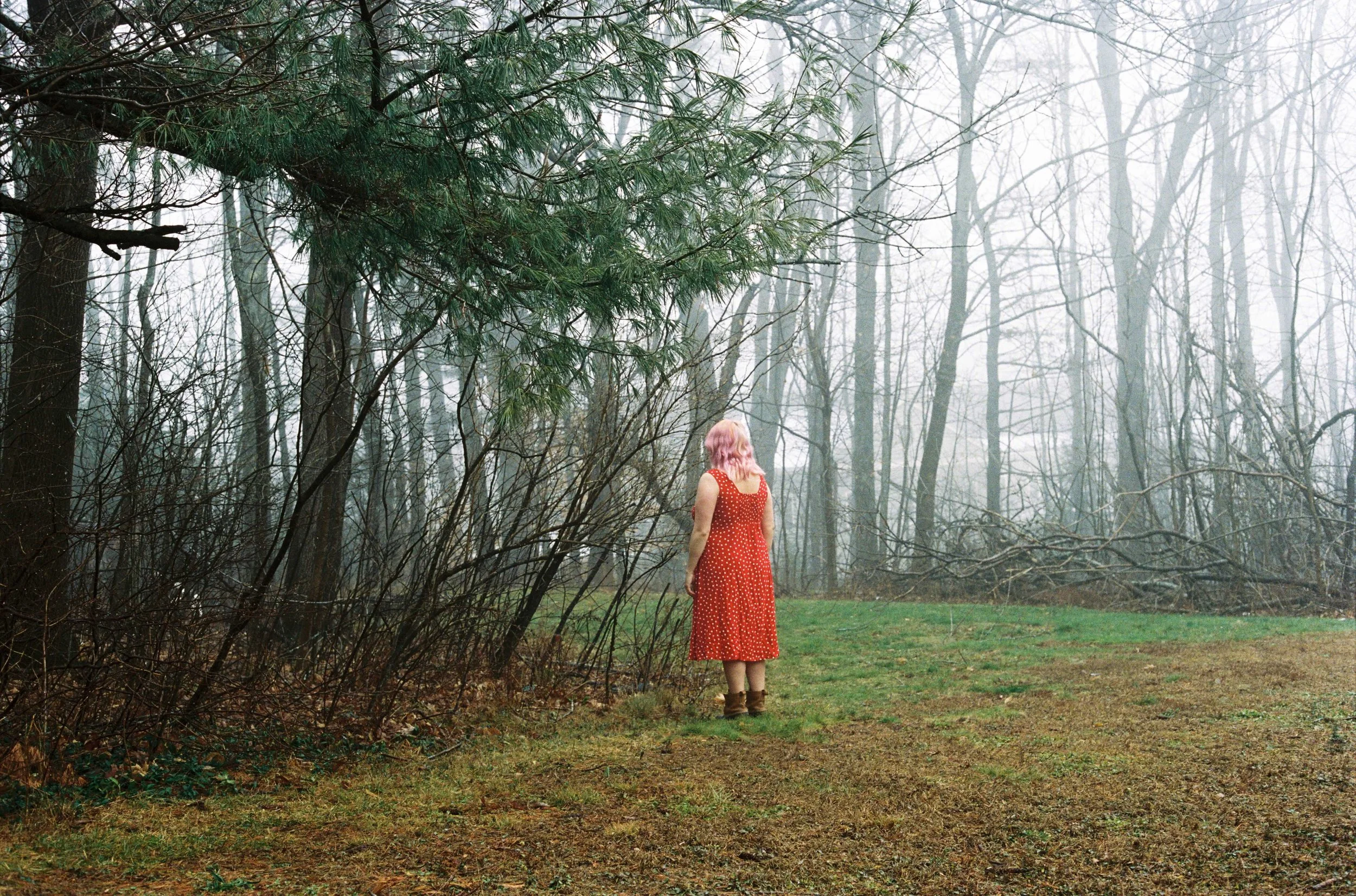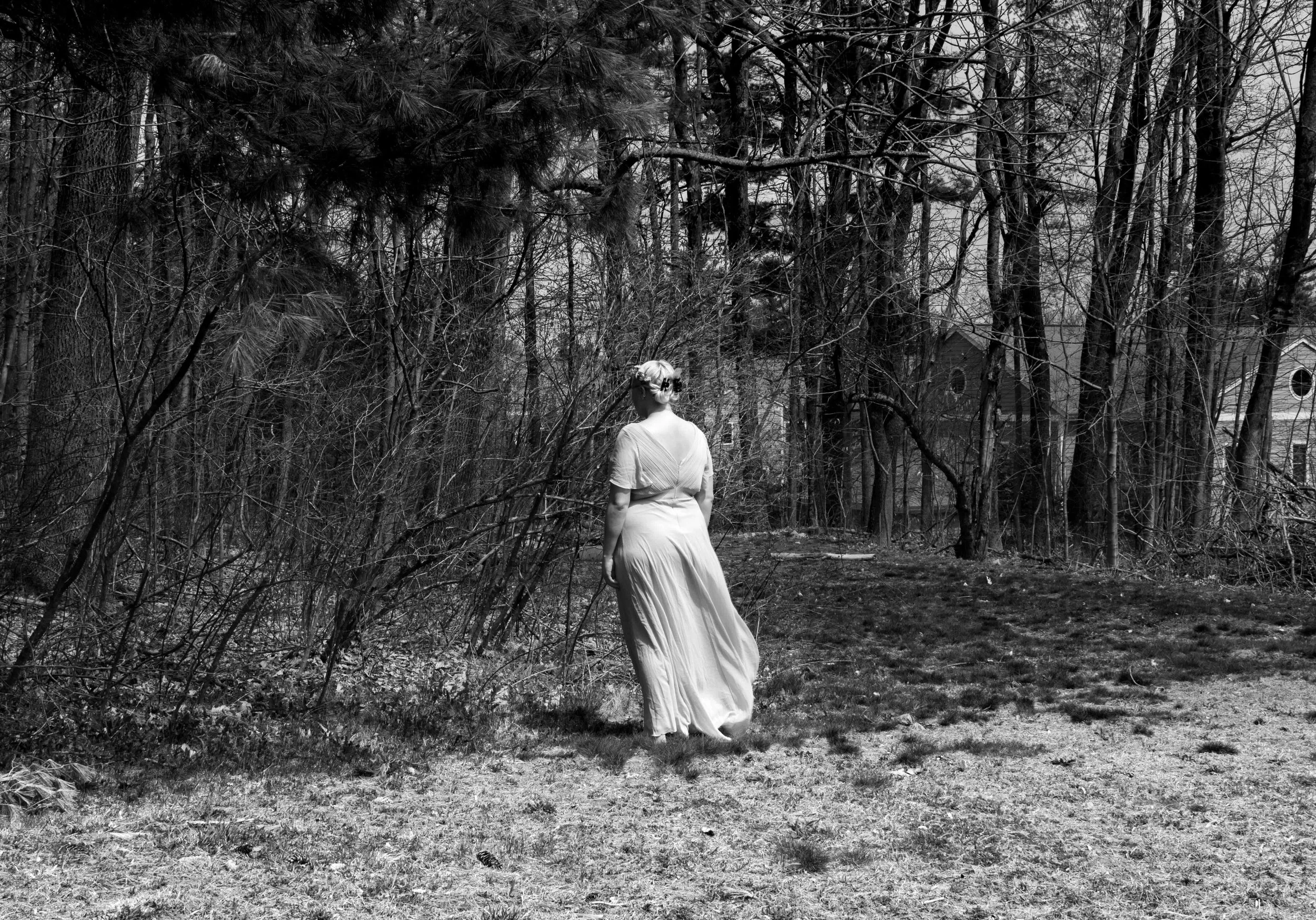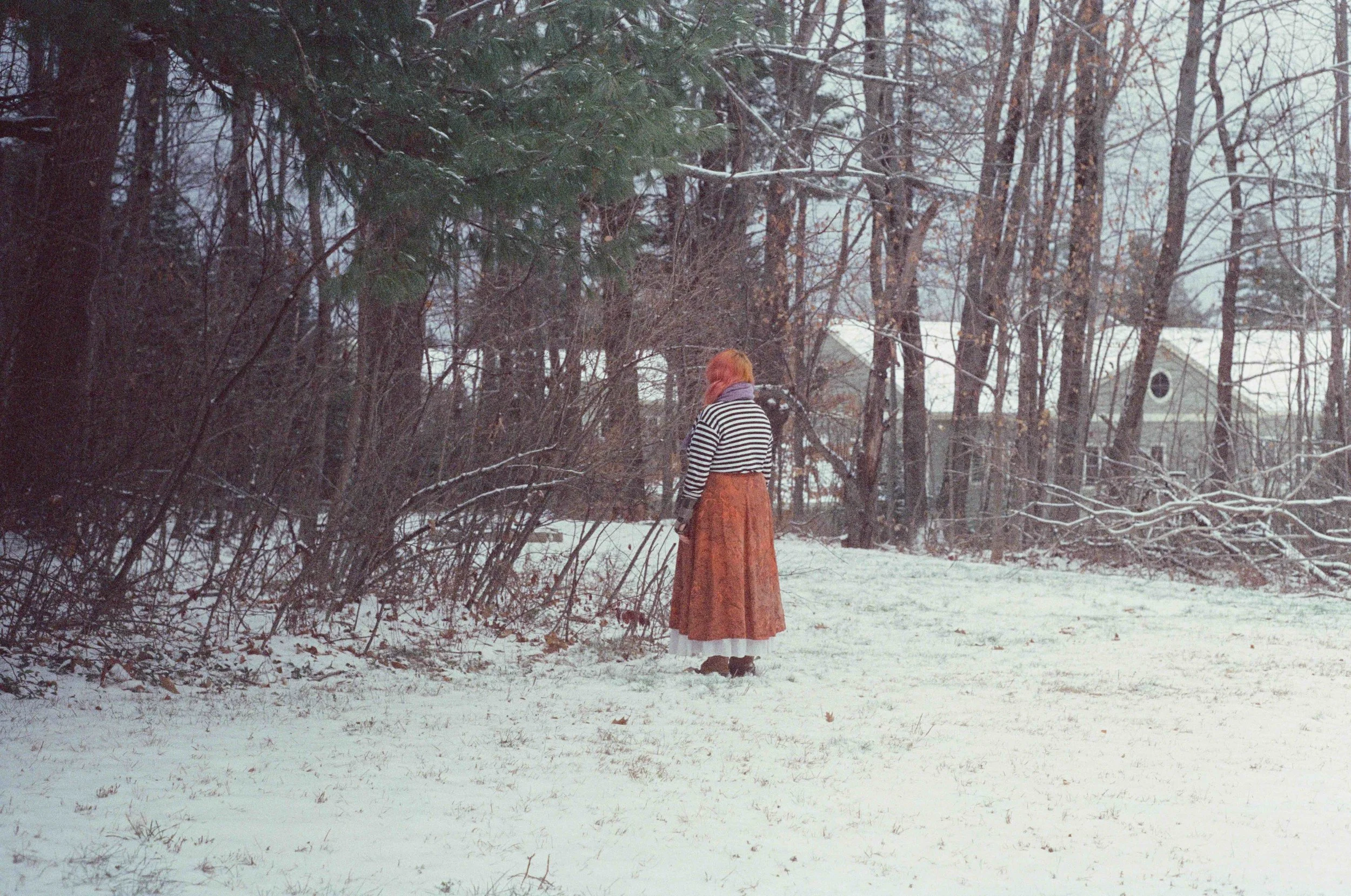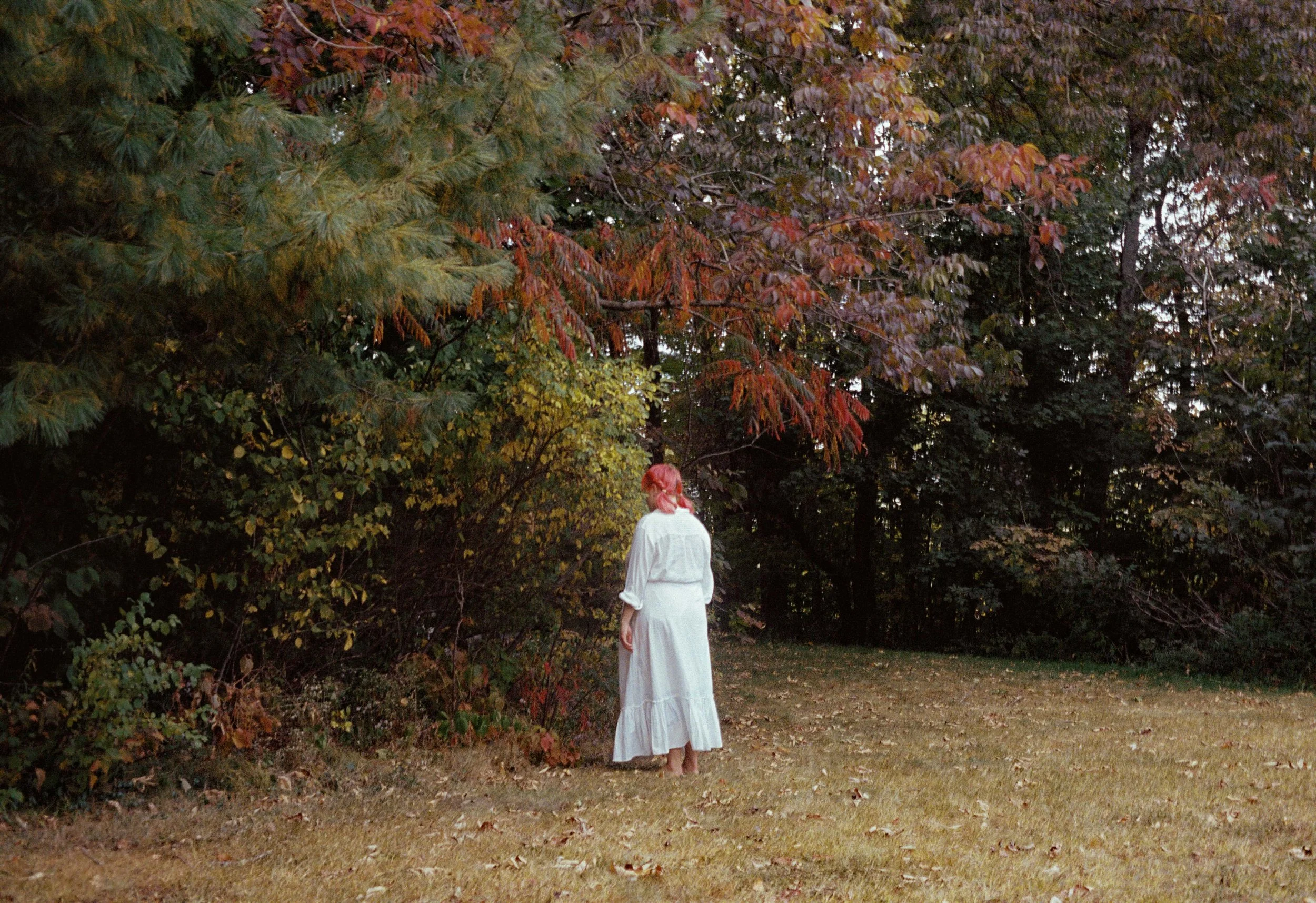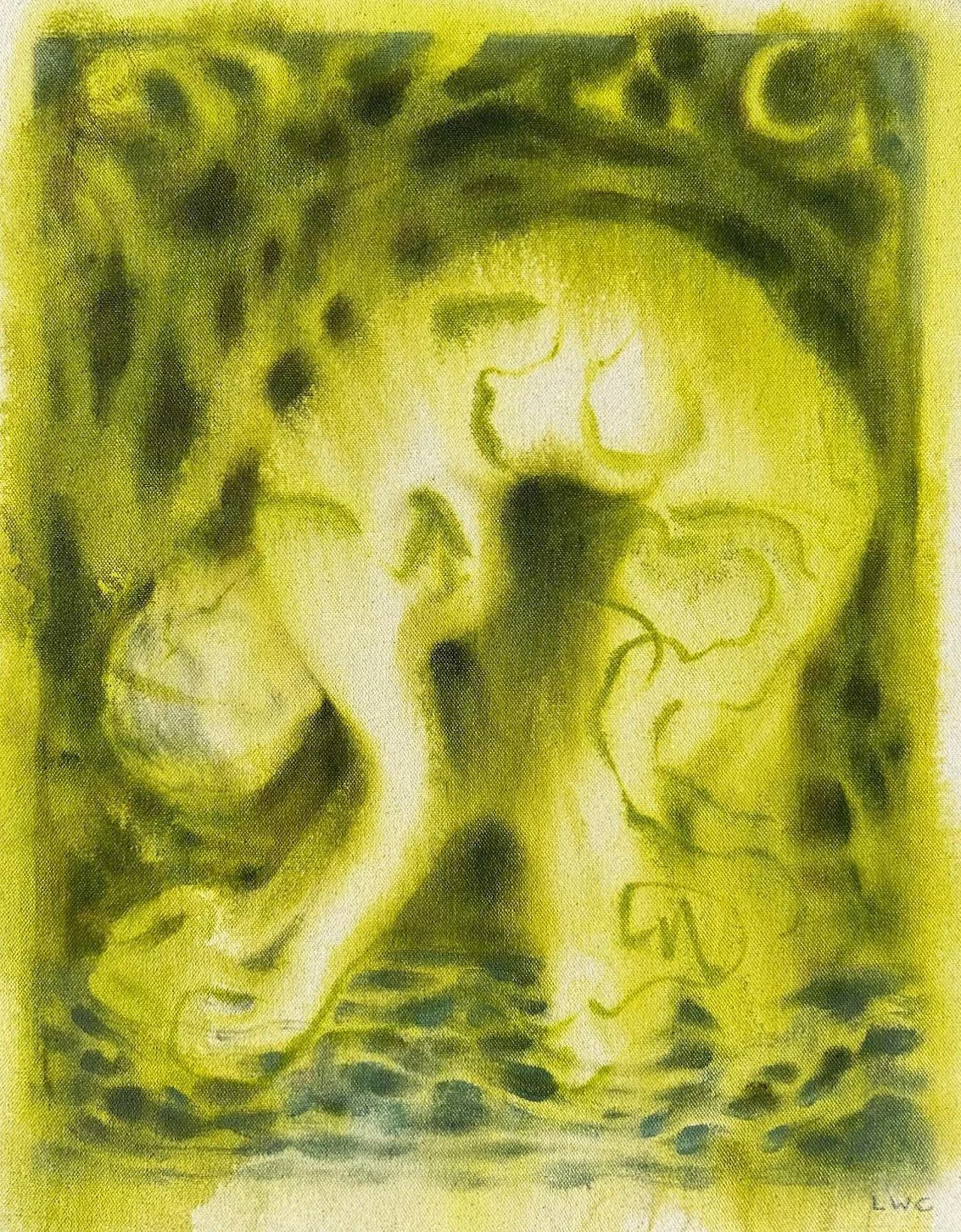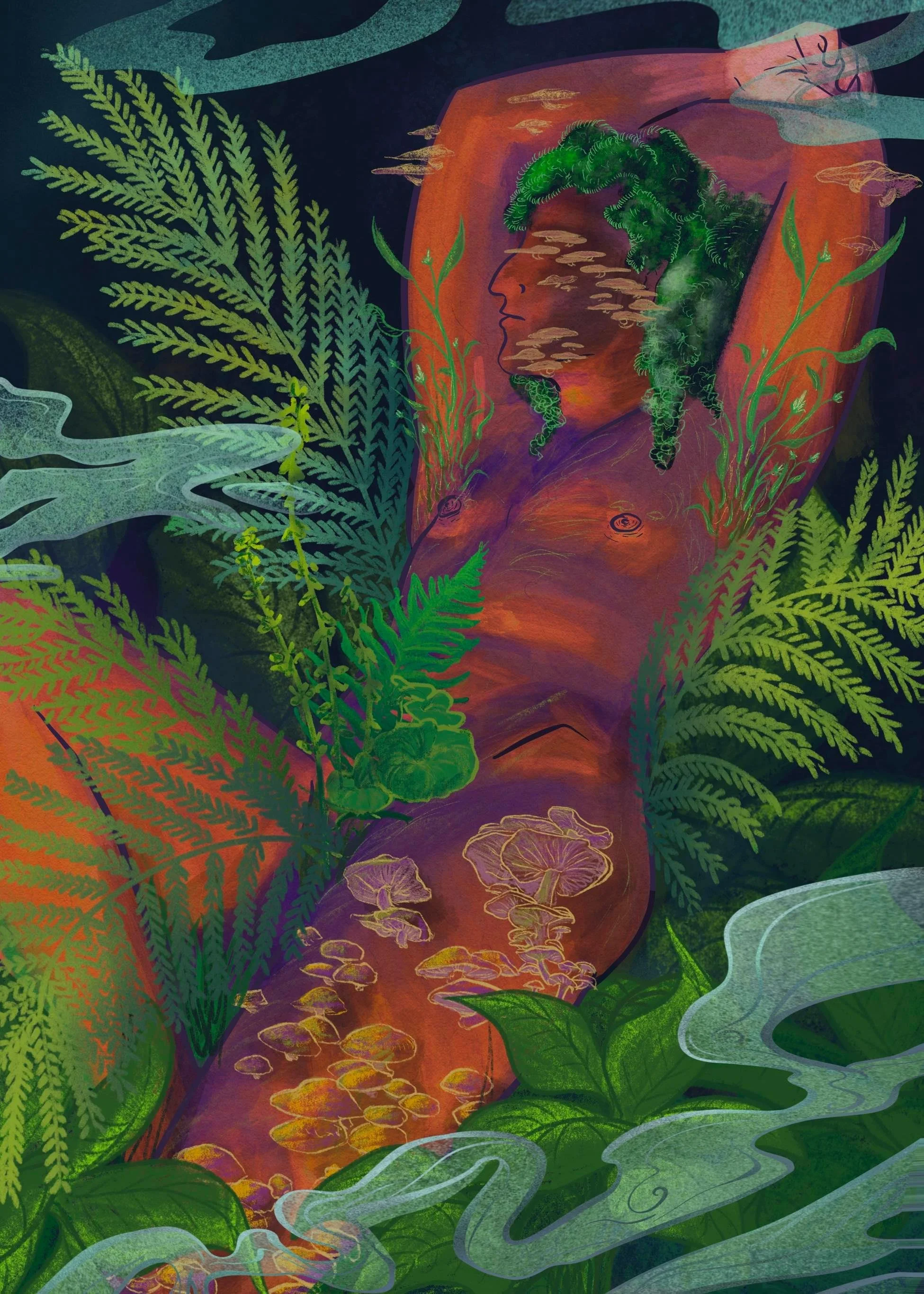Mossbody
Mossbody
Contents
Editor’s Letter
This letter was typed by two human hands, actually maybe fourteen, if you’re counting each one of our editors running their fingers over this edition. Enter the meadow of editor’s, come see what we see.
Mossbody began as “Life on Earth,” which we later realized was pulled out of our subconscious from a TV show we (and everyone else) had watched with the same name. After pondering the vastness of biodiversity from the paleozoic to the mesozoic era and reminiscing on the way algae gets stuck around your ankles at the beach, we finally arrived at Mossbody.
We wanted an edition that would illuminate our interconnected earthly existence; how we’re connected to the Earth, how the Earth is connected to us, how we’re connected to each other. Collectivity is what makes all this worth it, as Opal Age is essentially, one big global group art project (if you’d like to look at it that way). And the students are aged 19 to 83.
Mossbody is unlike any other edition of Opal Age, with creations from Oklahoma to Indonesia to Bogotá reaching our inbox. Across six continents, we gathered together in the temple of Opal Age’s email to celebrate our beautiful planet.
To repeat an echo from our chamber, which has amazing acoustics, creation and community is the whole point. We’ll be screaming it offline and online for as long as we live. And organic, human creation is how we find our similarities, our collective conscience, how we find our shared visions of the world. Not through AI generated Ghibli dupes. The accidental micro-themes that showed up in Mossbody submissions globally are proof of this. Decomposition made its way into several poems, paintings, and photos. Through nature melting into itself again or through structures collapsing as they’re all eventually meant to. Apples made a surprise appearance too, maybe they’re our collective Platonic ideal of a fruit. Here we explore natures sweet nectars, her salty flats, and lunar mysteries.
The pieces and whispers of decomposition throughout this theme remind us that our experience here on Earth, at least at this time, is temporary. Our death is inevitable, yet the idea of melting back into the Earth, becoming parts of trees and flowers, is a stark reminder that all life never truly leaves this Earth. We’re all growing together on different planes of consciousness. Even in death there is still the beautiful ability to shed our wooden cages before being sunk into the Earth. Selflessly offering up the last of any support we can give. And in life, moss teaches us of resilience, another unavoidable theme when it comes to queer life. We revel across continents through visions of courageous uncoiling, from France to Jackson, Mississippi.
We invite you to play in our garden and explore the Earth with a new set of mossy glasses. Befriend your neighborhood crows and ask them to help you carry your dreams to the sky. Gossip with a tree about your day. Ask nature questions and be happily surprised at their answers.
Recall the time in your childhood when you made a diorama of Earths’ biomes to show and tell your class about. Harness that creative curiosity when communing with the Earth as a grown up. Mossbody was created with the intention that you will have a new sense of wonder with the ground below you and the vastness of sky above. In Theory will teach you about ways of seeing nature from different cultures in history, from indigenous ways of knowing and borderless Japanese exploration into Chinese and Indian Buddhist thought on nature.
And of course, as Opalers, we are creatures of our digital time, so we will leave you with some anecdotes we hope you never forget. Our fates with animals are deeply interconnected, and I giggle at the memory of seeing Jane Goodale holding a rat stuffed animal being interviewed for Subway Takes by Kareem Rahma. Flirtatiously, the two spoke of how they wanted to get drunk on the subway, sexism in science, and how the older generation needs to empower and inspire the youth with the tools to act on the things that we care about most. Especially our planet
Witness the elegant, interconnected, harmonious chaos of life. Like a mossy castle in Ireland, become one with the slow movement of time. Learn as it passes, remain resilient in times of droughts against our humanistic affinity for rights, and know that though there may be 22,000+ species of moss- we are all just that, moss, I mean humans.
stay wondrous and expansive,
the editors of Opal Age Tribune
Ash Bell, Angel Cetorelli, Katie Harrison, Claude Joven, Peter Rogers, Brigitte Vigo, & Eliška Wenzlová
Bank Robbers
today i shambled to the creek
with eye bags of sleep debt
and plucked countless water pennies
from the riverbed — put the money in my net
tempting the stream
with bully blows to its bank,
i sh my net about, begging for a bailout
of hopeful living wishes without
backbones. the spare change of
the current deposit themselves
into my outstretched pocket
as if i were shaking this waterway
upside down from the heels
like i need its lunch money.
i’ve rolled up to the white steps of BMO
in my broken down black rusted volvo
overdrawn in my account, with
a wealth of critters that don’t seem
to stuff seamlessly into the crude
ATM slots without getting gooey.
they don’t recognize this money here.
so i go back to the creek,
where cedar carrion sway to forever sleep
with their innards chewed up
and strewn about without a care
by some at-tailed, wealth hoarding
dam-building critter
who’s evidently dined and dashed.
other people come here to beg
wishes upon the stream,
whether a lender or overdrawn
they seek out natural bonds
like the grubby green thumbed
ecologists with bright orange proton packs
and shock-giving metal detectors
sifting for slivers of living gold
with silver ns and emerald tails.
today i plucked crayfish from the waters
and wondered on eating them.
i plucked frogs from the pond
and delighted on holding them.
i snatched up coin purses of
little white clams at a bargain,
glistening tears sticking
to the cross-hatched slats of this net,
as we topple stone tellers hungry for our gilled betters.
i came to the creek bankrupt of myself
as some odd benthal bubbling in
the underneath, feeling the pebbly
taste of dirt grating my lips and teeth.
but i soon plucked the bull rush
to get with and busy my hands
and found myself a landlord again.
Sebastian Karall
Woodstock, Ontario
migration
from housing turned
unstable I grab sacred objects
books, my keffiyeh,
the camo jacket tort bought me,
our dead are powerful they move
outside this world &
we protect what’s left behind
(FROM FOXES)
nestle, burrow, dig
coats under my
head lose my eyes
constellation dried gum
measurements studious
sky scrawled above
I look my new roommate
in the eyes
and tell them
I need a house no one
can take from me
for now
I make my skin
home & pack
only what I need
with no room for time
count days a prisoner
new walls no use for tuesdays
just the first in a new bed
(FOR MULCH)
fall into survival sinking
roots deep retreating
thawing earth don’t change
clothes, don’t shower keep
everything needed in pockets dirt
can be carried under fingernails
etchings marking the days
listen
the peepers are crowing
crowning a new year
they say winter’s over
let the warmth bring you deeper
into the night
(WITH OFFERINGS)
NECTAR noun
hot cocoa & instant coffee
AMBROSIA noun
sardine spinal cords
so i’m
on track for
40 books this year
so i fall
into other worlds
some like mine, comforting
in their cruelty madness
woven prophetic
embrace
some foreign written
by a martyr, a cult classic
published the year before
her death
(TIKKUN OLAM)
cresting hills
i see angels they hold
me in grass & mud
it will not always be like this
cuticles stained yellow
curry goat, rice&peas
plantains sweet as summer
a family speaks fast and loud
a boy ten or twelve pushes
his father to the side bites
his thumb at the menu
this isn’t my home
& i witness return
as is for them, will be for me
blind faith
my drug of choice
(FOR FUTURE HOUSES)
a single lamp linen
candles stones encircling
flame lock on the door
where i’m going
has no room for rescue
my body under hanging
keys, load-bearing texts
eating the air translucent
smoking, this can be my world,
a selfishness fit for dreams
drinking words like nectar
I read an essay by a girl
I haven’t seen in years
we’re still dancing in the gazebo
we’re still dancing
e.k. jewett
she/her
Providence, Rhode Island

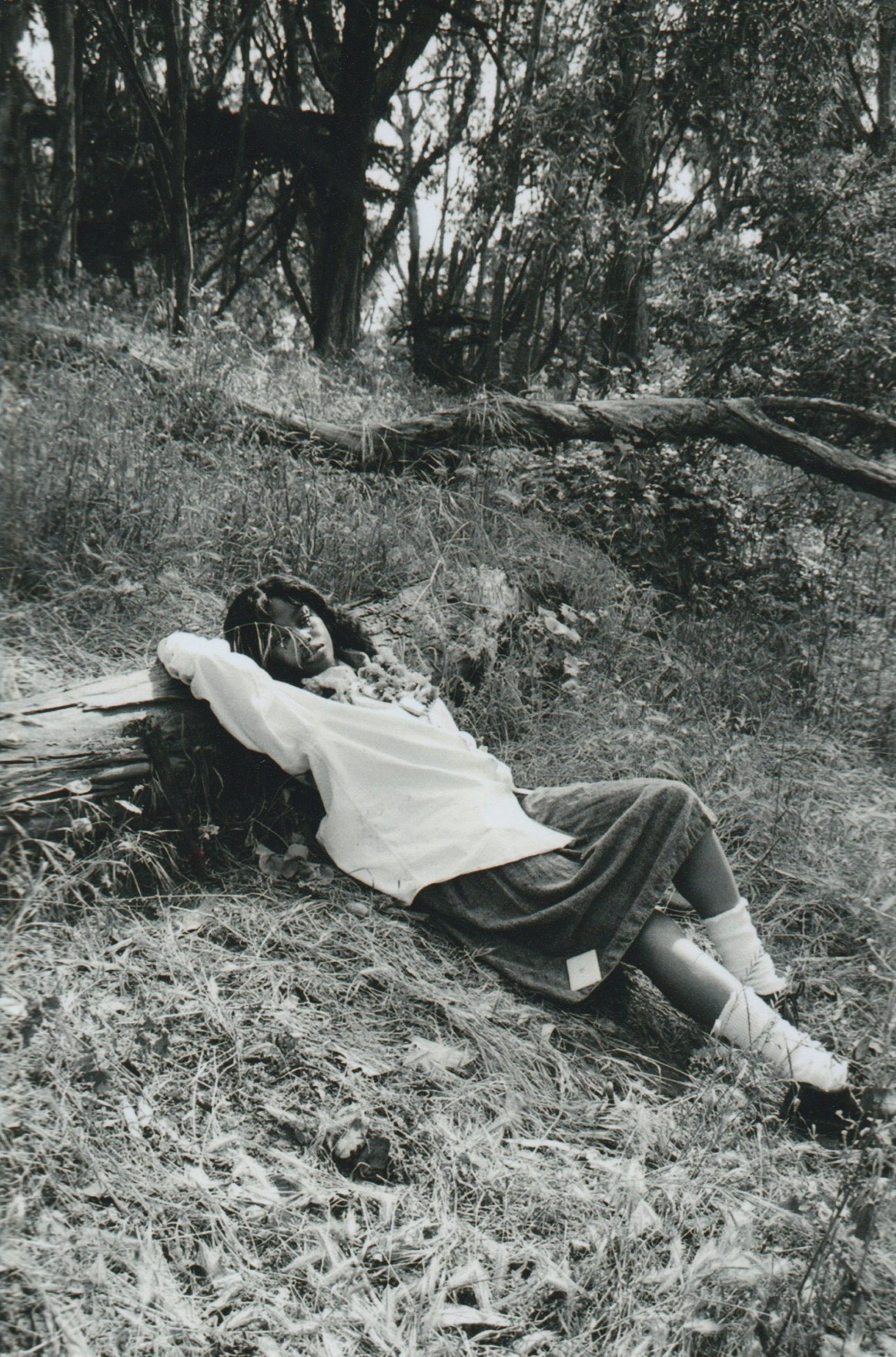


digital pulse, eco death, eternal rest, nature's digital pulse,
digital pulse, eco death, eternal rest, nature's digital pulse,
photos by Digi (he/they)
Im a queer trans Latine photographer and artist based in Ramaytush-Ohlone land, (Bay Area). My work is a based on the power of storytelling, centering the lived experiences and nuanced realities of QTBIPOC (Queer, Trans, Black, Indigenous, People of Color) communities. With a focus on creating imagery that is both intimate and intentional, my work is deeply rooted in values of representation, care, and collective resilience.
Drawing inspiration from my own intersections of identity, I use my own lens to explore themes of identity, memory, and belonging. My work invites viewers into moments that celebrate joy, vulnerability, and the complexity of human connection, often collaborating with my community to ensure that each image reflects shared vision and mutual respect.
Beyond my art, Im passionate about community building and approach my practice with a commitment to honoring the lands I occupy and the voices I amplify. I believe in the transformative power of art to foster connection, spark dialogue, and create spaces where marginalized identities can thrive unapologetically. My work is not just about capturing images; it’s about creating a legacy of visibility, care, and celebration for those who have been historically overlooked.
I did this shoot with my bestfriend in 2022/2023, I had my first show that I was apart of and I wanted to capture technology and nature with elements of human design. I had a visual physical piece along with some of these photos.
Untamed
I found her crouched beneath the cedar’s shade,
A ghost of wild things, sunlight in her hair,
Her skin was streaked with earth, her gaze betrayed
No knowledge of the world, no thought of care.
She spoke in silence, gestures sharp and raw,
A language born of wind and broken stone.
Her hands, though rough, with gentle purpose saw
The beating heart within my palm alone.
We danced where moonlight pierced the forest’s veil,
Her laughter, strange and fierce, unchained the night.
In fleeting touch, I glimpsed some buried tale,
A world untouched by grief, a purer light.
But dawn returned, and with it came the call—
She turned, a shadow fading, feral, small.
Joshua Walker / The Last Bard
He/Him
Oklahoma City, OK
2men&3Birds
Madina Talberg, she/her
Barcelona, Spain
AK, 99827
Cooper Griffith
It’s cold and rainy in the green valleys of nowhere, heaven untouched where the stars still shine.
Walking down Main Street waiting for some two car congestion. I take a left where the
mountains kiss the shore.
Im humming along to the wind and her song. Humming along to the rain and my shoes on
pavement
I hear my front door creak and it sounds like I love you.
The 24 hour stop and shop with its neon signs glow like a match set against the backdrop of my
sleepy town.
I blink rain drops away and hold in my warmth, arms wrapped around myself I shimmy a little
bit almost to prove to myself the cold is real. Bring on the winter I can handle it this time.
The wind is running down my street and my mind chases it like a hound. The last licks of
midnight sun have fallen into the sea and my town starts to look like a film noir still. Like
someone drew the mountains out of charcoal.
My knees stained green with the grass are washed out in the darkness. So come on let the night
in I’ve been waiting all day. At this hour even the rivers get tired and their usual whisper is
muffled by the quiet of the night. So let the night in so the salmon can sleep and I can muse
about my town again.
Invisible String
Olivia Hawkswell
This painting explores the concept of the invisible string theory, the idea that people are connected by unseen threads of fate, drawing them together. This connection symbolises the potential for new beginnings, whether in platonic or romantic relationships.
A Sun Among Moons
After Wu Tsao
For The Courtesan Ch’ing Lin
RJ Barduhn
She/Her
Her deepened curves drink in the moonlight.
Absorbs its illuminating glow and pulls in the tide.
The force of nature she is
Adorned in cluster of moss
Newly woven cobwebs
And anklets strung together by dew drops.
Knelt down in front of her
thickened thighs
wrapped around my neck
like a feather boa.
Their warmth
Enveloping me into another world
Deafening the presence of time.
Plucking every distraction
from a digital age
one by one.
Our lips tracing love in the tongues
of nourishing soil
where the heart is rooted
sturdy and firm.
Feasting upon her ripeness
Nectar dripping down my neck
affiliated to the aftermath
of rainforest showers.
A reverse eclipse
Larger than our closest star
Emitting her ruling stance.
Despite her demigod status.
Despite my insignificant stature.
I crave for what
I cannot grasp.
As they say
Nature moves
at will.
Visitation
Self portraits taken in my backyard over the course of a couple years (2020-2021) through different seasons. It is a subset of a project called Visitation, which is an exploration of mortality, corporeality, and newly awakened spirituality triggered by becoming disabled with undiagnosed joint and muscle issues as a young adult. This project encompasses feelings of awe and fear of and fascination with the unknown. Nature is a fitting metaphor for the unknown, as it is larger than us, and connection with nature has been the source of my spiritual feelings. There are events in life that force you to confront the unknown. My experience of disability has been a continuous state of grappling and grieving.
At the height of your fear you have no choice but to relinquish control and let things take their course: to stand out in the rain and let the elements weather you.
Jules Mogul, she/her
Bangor, Maine
I am nothing but a river
I once found a bird,
a little wild thing,
who had stumbled to the river
in its final moments. Red veins running
back to the root.
I performed a quiet ritual.
Let shovel meet silt,
silt meet feather,
feather meet the pulse
of my trembling hands.
God is a concept,
though I whispered to him then,
as I watched the light-drift
leave traces
on a body
well-loved.
Is this earth like juniper,
reaching
into winter?
Am I
the earth, grieving itself
in sweet ceremony?
Maybe I am nothing but a river,
the way water travels
from root to open arms, then back
again. And the wind
is threading together memories
that I am calling self.
Still, I am searching
for this old spirit.
For signs that I
was once a wild thing.
Gianna Dyer, she/her
Houston, Texas
Al Lawlor, He/Him/She/Her
Salt Lake City / New York City
“I’ve been creating art for over nine years, and my work often explores the beauty in things that are uncomfortable or grotesque. I translate my emotions into color, using it as a language to process feelings that I’m unable to express in words. Whether through illustration, textiles, printmaking, or animation, I love experimenting with different mediums and embracing the unexpected. As a queer person, themes of identity and self-discovery are central to my work, and I’m happiest when I can share my art with others and engage with my community!”
The White Hare
Sarah Das Gupta
A white hare races through the forest,
pine trees whisper secret messages,
bramble thickets give willing refuge,
rooks on high, croak loud warnings.
The spirits side with their own.
Pursuers are fast closing in,
galloping horses sweat and strain.
Angry riders whip and urge their steeds,
a well-aimed arrow, lodges cruelly,
in the back of the ghostly hare.
Now over the open field,
he runs faster still, despite
the wound bleeding freely.
The horsemen make a sprint
to catch the fleeing devil
A lonely cottage, looms ahead,
the hare flies through the key hole.
The oak door bursts open,
an old crone sits in a rocking chair.
Her black cat glares, amber-eyed.
They cannot see from her back
a wound bleeds blood flows free.
The white hare has vanished.
Only red stains on the rush floor,
show where it may have been.
(Many cultures, including in the UK, have
regarded hares as creatures capable of
changing form. There are many stories
of witches taking the form of hares
to escape punishment.)
linger
Grace Mc Nally
she/her
ballymoe
i wanted libra season to be a magic spell
Cassidy Black
glistening in the autumn light soft before snow.
silence and warmth in october was nowhere.
a wilting orchid, my mind fluorescent, the days melting
into midnight. i crawled from room to room,
always ending up on the kitchen tile. the breeze
from an open window a clear, cool kiss
on my cheekbones. in the morning i’ll search
for sunbeams scattered across the hardwood.
until then, i watch the faucet
drip symphonies of what’s lost
down the drain, another broken tape
singing time will heal. time will erode
what you once remembered so vividly
down to a dull formless shape of a memory.
Cusp
Astrid Bloodgood
they/them
You, are the brink of springtide
Too cold for flowers, too warm for snowball fights
You are the melting ice; making rivers, making waterfalls, making rainbows
in the sun.
The first moment in the day, just out of dream.
You are the stirring worms, the reaching bulbs, the awakening moss;
shedding frost and springing back to warm, green life.
You are the few tumbling rocks sounding the avalanche
The ‘set’ ahead of ‘go’. The kettle on. The decision made, not yet
enacted.
You are the breath preceding dawn, the cool inhale before the sun hits
your face, the rush of air as two destined lovers meet.
You are the deafening heart beat at the top, the bend in your knees as
you prepare, the electric siren song at the top of the waterfall.
You are the first moment in the journey, when not a single step has
been made.
You are the experience of becoming.
Weeping Willow
“I have always lived in Mississippi, and I have always loved painting here. I am heavily inspired by its lush landscape, and in painting variations of it I tend to process the impending grief of potentially losing pieces of it to climate decline. Sunsets become more and more important to witness and as my attention to the small details grows, my appreciation for the present moment continues to grow as well. “Weeping Willow” is a depiction of a part of me that stays in those beautiful places, holding on with earnest as long as she can.”
Lucie Wren Cooper she/her
Jackson, Mississippi
soft to the touch
you are mine all mine and i am
soft in your jagged ridges,
sprawling over rough terrain.
i have no roots, but i am anchored
here, covering ground without moving.
sometimes i dream of the sky and
she sends down wet kisses
that bring me back to life.
shed a tear for me
when i wither and i will
unfurl before your eyes. and
even in the storm i will cling to you
if you move gently; all of me was meant
for holding. i am all hands and i am all mouth
and i will breathe air into your lungs again if you let me.
all of my body covers all of yours and in these soft pillows
we never die.
Wren Aster
Resilience
Resilience explores the figure of the warrior through the eyes of a disabled woman, revealing the unsuspected strength that lies in apparent fragility. Beyond the stereotypical image of physical struggle, this series seeks to reveal an inner battle, a fight against invisible obstacles, both social and personal. Each portrait is a metaphor for resistance, perseverance and dignity. Resilience is a tribute to all those who, beyond appearances, fight invisible but essential battles. A celebration of the beauty of difference and the power of the human soul.
Model - Mélina, @melinadaptable
Ame BLARY they/he - iel/il
France
Infinity Onion
a long way from home
(I remember, the feeling
of grainy soil,
the soft touch of tiny molecule feet stopping to visit,
the feeling of a new sprout–sharp excitement of growing of a new limb,
expanding)
selected from one of a couple dozen
(sometimes the sun burnt too bright and left my leaves dry paper thin, but we sure looked beautiful all green and tall together)
held together with one green rubber band
(it’s green like us)
forever until it’s time to rot
(it’s not the same without the sun)
katie h
FL to Prague
Taps sounding softly / hearts beating true / as we all say / goodnight to you
I did not grow up in a biophilic family
That hiked on weekend mornings like it was their church
And sought the embrace of fresh air like it was a relative.
I grew up with summer meaning air-conditioning,
Cold sodas in the fridge, and catching up with seasons-worth of
Dr. Phil and cake-based reality television saved on the DVR.
Still, for a week in July or August each year, my homebody self
Would be left in the Gorge under the care of elder Girl Scouts.
After I learned what to expect, I fell in love with the place;
My first year I cried a lot about my tired legs, the mosquitoes,
And Dad not being there to read me bedtime stories, but then
I found myself empowered by surviving these challenges and
Interested in what the next summer could bring. I wondered
What else my body was capable of, even though I despised it,
What kinds of connections I could make with other girls, and
who else I could be when no one close to me was watching,
So I kept asking to come back.
Though my gateway to nature was tied to a binary gender
I tried and failed to align with, at this young age I began to notice
That those expectations only existed where humans are.
But out here, beyond the light pollution, under stars brighter
Than anyone told you they could be, in a world quieter
Than you’ve ever heard it, it doesn’t seem to matter.
These were the only times I was thankful for girlhood, that I could be
amongst this gang of fellow exhausted, unbathed, and giggly children
Being lulled to sleep in a puddle of sleeping bags by the teenage sopranos
Tasked with keeping us alive all week. For all its curses, being a girl
Had allowed me access to somewhere my soul needed to be. Not just
With its old growth trees and ferns bouncing in the summer wind, but with
Its hoards of children, all of us indoctrinated to be strong young ladies.
In this gaggle of girls, I tested new versions of myself and brought home
My findings, always relieved to have friends at the end of the week that I was
Hugging goodbye, introducing to my parents, and wondering about
For the rest of the summer and forever. Camp taught me so many lessons:
how to sing while hiking uphill, how to heal wounds with yarrow and lady fern,
How to turn any blank surface into a colorful mural, how to jump in head-first,
How to make friends with girls that look mean, how to light my own fire,
And, ultimately, how to stay soft in a rugged, inimical world.
This summer tradition was birdsong in my cage of girlhood,
and now as a trans adult, less inhibited by the insecurity
Of feeling like a bear hidden amongst a herd of deer,
I am learning to let myself dance on the breeze.
Jules
they/he
queer love
Ame seeks to make visible a reality that is often marginalized, while offering a reflection on the many ways in which love is lived, felt and shared, without limits or boundaries. It’s a tribute to the diversity of human relationships, a call to self-acceptance and self-affirmation, in all its richness, complexity and beauty.
Ame BLARY they/he - iel/il
France

Salt at the Root
The sand under my feet is covered with small pebbles and through the clear water I can see every one. Small crabs crawl among them, hidden under their shells, and I can only tell they’re moving when I bend down close. From farther away they get lost under the swirls on the surface. Little clouds of sand puff from under the soles of my feet, released from the hold of my toes as I walk slowly, listening to the water making contact with my skin, cold as it splashes up my calves. The sun is powerful this morning, white and too bright to be seen, bathing the coast in light that brings out the color in everything.
Sand can be broken until it’s nearly invisible, but however small, it’s intact. The moon could be my bone cells on a petri dish, projected for the world. He saw me, or he saw himself reflected and refracted, but there’s a difference between closeness and a mirror. My breath pushes at the edges of my body, my ribcage rises and falls, heavy like a claw around my organs. Maybe bones were never meant to be weightless, and there are some places the salt won’t touch without hurting. Sitting under trees whose shadows grow smaller every year, I ask the water to stop lapping for a moment as this constant motion wears the roots away, such little splashes over and over. The water doesn’t listen, but I move closer to the brittle trunk, knowing there’s a reason for the shore.
This time last year I was here with a boy I had thought would stay. We swam in this water, warmer then, a few months later in the season than it is now. Fully clothed, we started out wading, but a couple bad splashes set us to soaking. Back on the sand, already burning hot by midmorning, he peeled my shirt off, tugging from the bottom and flinging it away so it landed in a heap, white and shining like a dead jellyfish. Then he took my hand in his and dragged me to the trees, his wet fingers gripping my wrist tightly as we disappeared under sparse collected shadows. As the water encroaches on the shore, rising a little bit every year, the salt goes to the roots of these trees and saps them of their color. The trunks start to look like bones and after a while they fall over—but then they float, weightless ribcages too porous to sink. There’s a space between the two front teeth of that boy, and I watched it as my gaze lingered in the space between our mouths.
In the winter his voice was as cold as the water, rushing past my ankles. In the summer his hand was as hot as the sun. Back on the porch, water pools where I stand, leaving dark patches the shape of my feet. Running down my legs, it’s warm, changed by closeness to my body as I watch the rest of it lapping at the shore, blue and clear. I towel my face and shake out my hair, letting droplets fly in all directions. White globs of sunscreen are thick between my fingers as I rub it over my burnt bare chest and shoulders, squinting in the absence of the sunglasses I always forget to wear. The spring sun is sinking, slowly sliding down the sky.
Porcelain gleams under golden-yellow lights from above as I spit into the sink’s clean bowl. I press my fingers on the tops of my shoulders in the mirror, watching as white spots appear and fade to pink again. My face looks leaner than usual, and I pick a grain of sand from my hairline while examining the freckles now scattered across my nose. He appears behind me in my memory, tracing my collarbone with his pointer finger, licking the salt from the skin behind my ear. A grain of sand gets stuck between his front teeth, he sucks it out with his tongue and it crunches between his molars. This boy, suddenly a force that breaks down rocks and turns them to particles, ready to be molded and made new. We ate salt for a summer to keep us afloat, to lighten our ribcages so we could forget ourselves in each other. Somewhere under the stars there was a bed and on that bed there was a boy and there was me, and sometimes the air got so thick the round white moon looked as small as a grain of sand, and it had no pull at all on our bodies.
James Duque Huffman, he/him
North Carolina
Alone in this bed, I pull the air into my lungs, breathing the same salt I taste when my tears reach my mouth. Water looks peaceful but it pulls with grabbing hands, lulling and coaxing until solid rock is pebbly floor for hermit crabs to crawl on. There’s a chill in the air, one that will be gone two weeks from now, floating through the gap in the window, across my bare stomach. There’s a warmth at the base of my spine, in the middle of my gut, at the back of my throat, all places I’ll never see, but they feel naked in this room.
“I work at an herbarium. An herbarium is a research collection made up of dried plant specimens. Every day I see hundreds of specimens that were collected all across the world over the last 300 years. I feel both more connected and more disconnected from the natural world than ever before.”
C.E. Day
they/them
This work is an homage to the "bench botanist" - those that do their work not in the field, but in labs and herbaria. How strange it is to be surrounded by four walls and dead plants, and catch only glimpses of past colors and lives in the shifting sheets.

Paula Quintero, she/her
Bogotá, Colombia
Kill the Lawn, Destroy the Suburban Wasteland.
Lawns by themselves are not nature, they are a controlled, artificial delusion, a superficial
green carpet imposed on the earth with chemicals, machinery and an almost pious obsession
with conformity. The North American lawn - neatly trimmed, aggressively weeded, perfectly
edged - serves as a monument to control, domination, an ingrained fear of the wild and
untamed. A sterile, biologically dead zone, and yet it has become the defining feature of the
suburban dream.
¿How did this come to be, and how did an ecological wasteland become a symbol of
prestige? American lawns can trace their origins back to aristocratic Europe, where only the
wealthiest landowners were able to afford dedicating vast tracts of land to nothing, to grass
for pure appearance, rather than for subsistence reasons. In the 20th century, the postwar
boom and the rise of the suburbs made this aristocratic affectation an expectation for the
middle class. Lawns became the requirement, the unquestioned rule.
And so, entire neighborhoods have been built around an untruth: that a well-kept lawn spells
the mark of a good citizen. A weed is a failure and a dandelion is a menace, but a lawn is not
a sign of life: It's a war zone.
The “perfect lawn” pursuit constitutes an exercise form of environmental degradation since it
is a gradual and relentless slaughter of everything that fails to conform to its narrow and
artificial definition of beauty. Consider the staggering costs: Lawns annually use an estimated
3 trillion gallons of water alone in the United States, and this in a world where entire regions
of Latin America are shrinking, where the rivers of Mexico are dwindling, and where the
glaciers of the Andes are disappearing. In order to keep these artificial green carpets alive,
water that should belong to the forests, to the farms, to the people, is being taken away.
The lawn is a poison-covered killing field. Fertilizers, pesticides, herbicides - all deployed in
an everlasting pugnacious contest against nature itself. These chemicals percolate into the
soil, reach the rivers, become widespread in the air. Not only do they stay in North America.
They run off and reach lands that have already suffered enough under the weight of
extractivism and exploitation. Those are the very same companies that sell pesticides for
lawns that poison the Amazon, and those same chemical giants that make billions from
suburban landscapes are the ones profiting from the destruction of indigenous lands.
Venture into the wilds of Latin America - in the depths of the rainforest, high in the
mountains, next to rivers - and you'll perceive the sound of life. The buzzing of insects, the
chirping of birds, the movement of leaves. Feel the circulating water, because in it you will
find the infinite and entwined trace that life exists.
Then step on the lawn once again and you will notice how you find absolutely nothing in it.
The hum of a distant lawnmower, perhaps. But no insects, no wildflowers, no movement. Just
a dead green carpet, chemically disinfected and constantly treated to prevent any weeds from
taking root. The American lawn is a biological desert, a symptom of a culture that only sees
the land as something to be mastered.
The obsession to control not only remains restricted to the gray suburbs of the United States.
It spreads overseas, beyond the borderlands, and engulfs entire continents. The same culture
that fights a war against dandelions declares a warrant against the Amazon. The same system
that clamors for a perfect and uniform grass demands that Latin America remain a supplier of
raw materials, cutting down forests, damming rivers, mining mountains and extracting life to
feed the insatiable hunger of the so-called “first world”.
Just as a lawn obliterates biodiversity in favor of a single controlled crop of lifeless grass,
multinational corporations are eradicating Latin American ecosystems to plant monocultures
of palm oil, soy, sugar cane, and cattle ranches ¿What is a lawn but a smaller version of a
deforested rainforest? North America poisons its own land with its chemicals, and then sends
the companies responsible to Latin America to continue their destruction: mining companies
gutting entire mountains, big oil companies gutting entire mountains, big oil companies
destroying entire forests, and then sending the responsible companies to Latin America to
continue their destruction.
Because it's not enough for them to kill their own land. They have to kill ours as well.
And if you've made it up to this point in your reading, you should also realize one thing.
Talking about a lawn - however realistic it may be - turns out to be a metaphorical figure, for
the lawn is a problem, but this writing is not only about the lawn.
It's a issue about control. About a system that is intolerant towards the natural, scared of
anything it cannot package, standardize and sell for its own economical purposes. The
suburban lawn is nothing but a small-scale reflection of a vastly larger violence, that is, the
same violence that has shaped history, that has dispossessed land, extracted resources, erased
cultures and crushed resistance under the infertile green carpet of colonialism and global
capitalism.
The sod is not merely artificial grass. It's the plantation, the strip mine, the factory farm, the
oil field. It is the reformation of the land to suit an economic machine that demands the
subjugation of ecosystems, of people, of entire nations. The same impulse that demands a
perfect, weed-free lawn is the one that led to the conquest of Latin America, to the parcelling
of land, to the division of rivers, to forced labor, to the extraction of life itself for the benefit
of others.
Colonialism not only took the land, it also modified it to the taste of its colonizers. It
uprooted the native landscapes, burned the forests, paved the once fertile land. ¿And who
profits from it? Not the land. Nor the people who have lived with it for generations. Wealth
flows in one direction: northward. Raw materials are extracted, forests are cut down, rivers
are dammed, and the profits fall into the hands of the same nations that once sent ships to
conquer the land. This is still happening, with different names and tools, but with the same
result.
Over and above the physical destruction, there is another robbery being attempted: the
robbery of culture, knowledge and identity. Those very same agencies that have substituted
sterile monocultures for biodiverse ecosystems are doing the same to human beings. Native
ways of knowing, of caring for the land, of living in balance with nature, have been
expunged, criminalized, repackaged and sold in digestible chunks. The same cultures that
were labeled as “primitive” for planting food, applying medicinal herbs and respecting the
land now see corporations profit from “organic” agriculture, pharmaceuticals patent stolen
plant knowledge and influencers turn ancestral traditions into Instagram aesthetics.
Even rebellion has become a commodified phenomenon. The same wealthy nations that
extract, pollute and exploit currently call themselves “green,” promote sustainable products,
grow PR-friendly forests while continuing to mine lithium, overfish the oceans and dump
toxic waste on the lands of those too powerless to defend themselves and hold their heads up
to them.
They instruct us to recycle while they drown the world in plastic. They tell us to plant trees
while they ravage rainforests. They tell us to buy “green” while they ship us our own
resources wrapped in waste at a higher price. The hypocrisy is relentless. And yet, they
expect silence.
To tear down and murder the lawn is therefore the banishment of delusion. It means rejecting
control, understanding that the struggle for nature is also the struggle against capitalism,
against colonialism, against those who believe that the earth must obey, that people must
serve, that resources exist to be plundered. But as nature fails to obey. Rainforest grows again
and rivers open new paths. Weeds crack the pavement and the earth reclaims what was stolen
from it. And so must we.
The struggle not only consists in reclaiming the land, but in regaining what is left of our own
nature, in recognizing that we are not living outside of it but are part of it, in remembering
that resistance is not only political but also biological, that every tree planted, every
indigenous land defended, every oil pipeline blocked, every stolen tradition vindicated, and
every wildflower that blooms is an act of rebellion against a system that demands that we
submit to it.
Kill the lawn. Let the wild come back. Allow the land to breathe again. And take back
all that was stolen from us.
Treimane Studios
“I create garments from pre-loved clothes, accessories and home textiles, embracing the principles of sustainability and honoring the planet. The word "pre-loved" reflects my commitment to giving new life to discarded materials and reducing waste in fashion.
Each piece I design carries traces of its past—a story woven into the fabric. Old stitches, pockets, buttons, and buttonholes, once functional for someone else, are preserved as subtle reminders of their previous purpose. These details celebrate the material's journey and remind us of the value in what already exists.”
“I personally source all my materials from local charity shops, diverting textiles from landfills and seeking treasures with history and character. When I discover handmade pieces, I take special care to preserve the craftsmanship, respecting the effort and resources that went into their creation.
Guided by zero-waste principles, I ensure that nothing goes to waste. Any offcuts from my process are saved, ready to be reimagined in future projects, extending their life cycle and keeping them out of the waste stream.
Through my work, I aim to connect people with the stories behind their clothing while promoting sustainable practices. Each creation is a testament to the beauty of repurposing and a small step toward a more conscious, earth-friendly future.”
Aleksandra Treimane, she/her
Riga, Latvia
Planetary Whispers
With the overwhelming feeling of helplessness in the US from all the nature protections being overthrown and the looming fear that these places will soon no longer exist, I’ve been reading and delving deeper into news and coverage of grassroots organizations, personal experiences of the major layoffs from all the NFW and NP workers. One book I’ve found myself drawn back to over and over again is Rooted by Lyanda Lynn Haupt. As the title suggests, it contains a fascinating interweaving of science, nature and spirituality - which drew me in immediately. The beginning was enthralling as Lyanda recounts childhood moments. I resonated deeply with her life and worldviews. My favorite part was her description of “Frog Church”. It ties into the hypocritical religion I grew up with stating that nothing will be as good as the afterlife. Why wouldn’t we, no matter your beliefs, not take care of the Earth while here?
Her writing is captivating and enchanting, reminding me vividly of memories growing up in Alaska. I miss smelling like the forest, mud under my fingernails and hair strewn and tangled by the wind. I used to spend so much of my time outside. Building forts, sledding, collecting mushrooms, making “soup” (mud) and just letting the Earth and nature comfort and nurture me. I let the wind and rain, trees and the whole Earth speak to me. The book has brought to the surface a lot of emotions for me during a time where I still feel so lost and directionless. It’s one of those books that continuously gets more interesting and thought provoking. Lyanda’s writing has continuously reminded and affirmed me, via her experiences, of my own in nature. That there is still so much to learn, but my connection with the place I grew up with isn’t something to disregard. Seeking solitude, connection with self and trying to make sense of the religion I grew up with (to what I believe now) are themes all found in Rooted.
The line between humanity, our societies and nature is no longer a line but cavernous. How far we’ve distanced ourselves from everything that nourishes us is frightening. What an odd relationship we have with Earth; to be so dependent upon the very ecosystems we are destroying. I cannot emphasize enough that we are meant to be stewards and protectors - living in harmony with the seasons. I can neither fully articulate my rage and fear over what is the main source of all this: money hungry corporations, corrupt governments and a huge lack of humanity and empathy. Now, these same people and companies have somehow turned the responsibility back on us (the same people suffering directly by their actions). Somehow making us feel responsible for what has happened. While I do believe that aside from profits, the biggest factor still fueling the overwhelming amount of pollution is consumption, and a collective movement of individuals taking responsibility for the part they play is still important, nothing is going to change unless the companies and individuals responsible for all this are held accountable.
I picked up Rooted again during a really hectic period of time when land protections were at risk and foreign mining initiatives were looming in Alaska. I knew then I wanted to take time away from the chaos, constant movement and vices in Prague. It was at a pivotal moment upon deciding what I wanted to do with the opportunities before me. A series of events later and many conversations with friends, Lyanda’s book continuously affirmed that I need to spend some time in nature. I can’t think clearly when in cities. I find myself influenced by everyone and everything around me and feel like a foreigner in my own mind and body. When I’m in the forest, I’m not worrying about how I look to other people. The lack of perception is beautiful, and I completely let go and listen for what I need to hear; everything around me is alive in a way that I cannot find in a crowd of a hundred people. I do not find solace in most people I know here. There is no special place in this city for me and I feel like I’m going insane when leaving my flat seems like a chore, whereas back home I hated to be inside. The contrast is striking as I realized it’s not a problem with me, but my environment. I found a new part of myself in Prague while I lost another one. For once in my life, I’m trying to do what I want to do without thinking about the future. Why am I 22 and worrying about my future when the likelihood of me growing old is slim with a burning planet?
Where I do find solace (within my friends and nature) I also found those same elements and comfort in Lyanda’s writing. My favorite hangout plans with my friends is to be outside with them. Ideally we’re experiencing all the natural world has to offer out in the mountains, the wind blowing through our hair. Maybe we see a little marmot pop up with a shitty joint I rolled. A lot of my firsts were outdoors, and I carry those memories and experiences with me always. The natural world brings a peacefulness to my mind that allows me to step out of the headspace I’m usually in and allows for more intentional introspection and self reflection. Living inside your head makes it really hard to see yourself clearly.
Ash Bell
Alaska to Prague
My favorite thing about my friends is they intensely and consistently remind me who I am. I’m quite picky with who I spend time with. Who you surround yourself with affects your own character whether you realize it or not. There’s a high expectation for my friends to show up for me and vice versa. Intense love accompanied with easy company. I can rarely explain fondness for these people who are interested in my life. Who have seen all I am in raw forms and choose to stay. My reflections on nature are not just in the forests and seas; because nature isn’t exclusive to just the plants and ecosystems we exist in. We are the Earth. My beautiful friends are direct reflections of the Earth. Bri reminds me of golden hour in a meadow of flowers. Beautiful, powerful and full of life, healing, endless knowledge and peace. Olivia is one of the strongest people I know, summoning images of the tall, jagged and steadfast mountains that surrounded me reminding me growing up around. Bec is like a shore with relentless crashing waves, reminding you that none of us are truly in control. Tam is an inspiration and is the truest representation of a rainy day. Rain is the most comforting weather for me and our conversations carry the same sentiment.
In the end, we’re all at the mercy of our environment. I could go on for ages about the influence my community has had on me. The highest form of compliment has been when my friends recount moments in nature that have reminded them of me. The thing I dread most (being perceived) isn’t so bad when someone says something that hits directly to your soul. Those kinds of honest and raw outside perceptions of yourself can be confronting; your soul being seen so transparently is terrifying yet comforting. The best example is when my dear friend Tam says things about the growth she’s seen in my independence and disposition. It’s a lovely feeling when progress like that is recognized and supported so genuinely. I guess what I’m saying with all this is that sense of belonging and simply being seen is so powerful. It reaffirms all you hope to be.
Give your friends more hugs and get the fuck outside with the ones you love.
Topher D'Penha they/he
Hamilton, Canada
The Forest





















